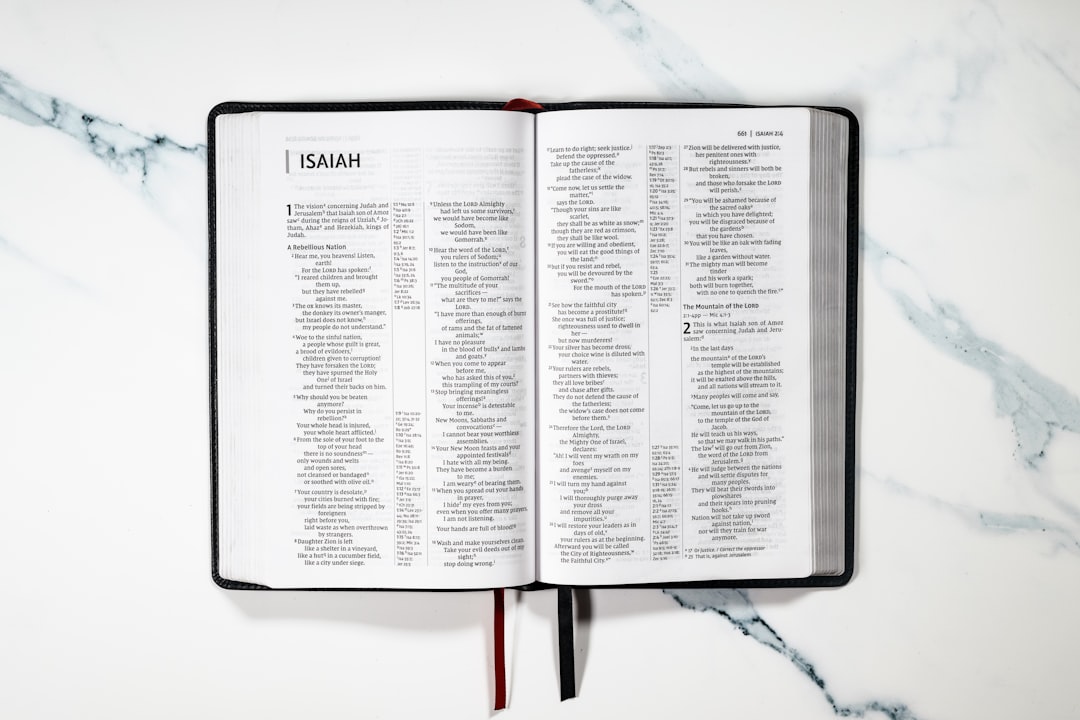Prophets have played a significant role in shaping the beliefs and practices of various faiths throughout history. From Christianity to Islam to Judaism, prophets have been seen as messengers from God, sharing divine revelations and guidance with their followers. In this blog post, we will explore the role of prophets in different faiths and how they have impacted the beliefs and teachings of their respective religions.
In Christianity, prophets are seen as individuals who have been chosen by God to deliver messages to the people. They are often referred to as “mouthpieces” for God, sharing his will and guidance with believers. The Old Testament is filled with stories of prophets such as Isaiah, Jeremiah, and Ezekiel who spoke on behalf of God to the people of Israel. These prophets were seen as holy men who were called to deliver messages of repentance, obedience, and hope to the people.
In the New Testament, Jesus Christ is regarded as the ultimate prophet in Christianity. He is believed to be the son of God and the savior of humanity. Jesus is seen as the fulfillment of the prophecies of the Old Testament and is believed to have brought a new covenant between God and humanity through his teachings and sacrifice. Christians believe that Jesus not only delivered messages from God but also embodied the message of God through his actions and teachings.
In Islam, prophets are central to the faith and play a crucial role in the teachings of the Quran. Muslims believe that Allah (God) has sent prophets to guide and instruct humanity throughout history. The most significant prophet in Islam is Muhammad, who is believed to be the final prophet and the seal of the prophets. Muslims regard Muhammad as the last messenger of God, who brought the final revelation (the Quran) to humanity.
In Islam, prophets are seen as examples of righteous behavior and obedience to God. Followers are encouraged to emulate the teachings and actions of the prophets in order to lead a life that is pleasing to God. The stories of prophets such as Noah, Abraham, Moses, and Jesus are recounted in the Quran as examples of faith, patience, and perseverance in the face of adversity.
In Judaism, prophets are seen as individuals who were chosen by God to deliver messages to the people of Israel. The Hebrew Bible (Old Testament) contains numerous stories of prophets such as Samuel, Elijah, and Isaiah who spoke on behalf of God. Prophets in Judaism were called to rebuke the people for their sins, offer guidance and encouragement, and foretell future events.
In Judaism, prophets are regarded as individuals who had a direct line of communication with God and were able to convey his will to the people. The writings of the prophets are considered sacred and form an integral part of Jewish scripture. The teachings of the prophets continue to influence Jewish beliefs and practices to this day.
In Hinduism, prophets are known as Rishis or sages who have attained spiritual enlightenment and divine wisdom. These sages are believed to have received cosmic revelations and insights into the nature of reality. Hindus regard the Vedas, the ancient scriptures of Hinduism, as the revealed teachings of the Rishis and the foundation of Hindu religious thought.
Hinduism has a rich tradition of prophetic figures such as Krishna, Rama, and Gautama Buddha who are revered as incarnations of the divine. These prophets are seen as embodiments of the divine will and are worshipped as gods and teachers. The teachings of these prophets have had a profound influence on Hindu philosophy, ethics, and spirituality.
In Buddhism, prophets are known as Buddhas or enlightened beings who have attained nirvana and transcended the cycle of birth, death, and rebirth. The historical Buddha, Siddhartha Gautama, is regarded as the founder of Buddhism and the supreme prophet of the faith. Buddhists believe that the Buddha revealed the Four Noble Truths and the Eightfold Path, which are the keys to liberation from suffering and attainment of enlightenment.
Prophets play a crucial role in the development of religious traditions and the transmission of divine wisdom and guidance. They are seen as messengers of God or embodiments of divine truth who bring messages of hope, repentance, and salvation to their followers. The stories and teachings of prophets continue to inspire and guide believers in different faiths around the world.
In conclusion, prophets have played a central role in shaping the beliefs, practices, and teachings of different faiths throughout history. Whether in Christianity, Islam, Judaism, Hinduism, or Buddhism, prophets are revered as messengers of God or enlightened beings who have shared divine revelations and guidance with their followers. Their stories and teachings continue to inspire and guide believers in their spiritual journeys and quest for meaning and purpose in life.

